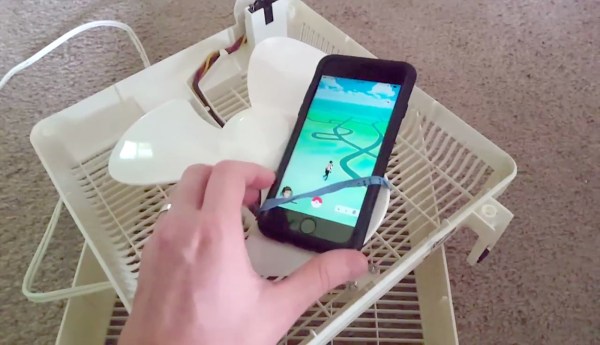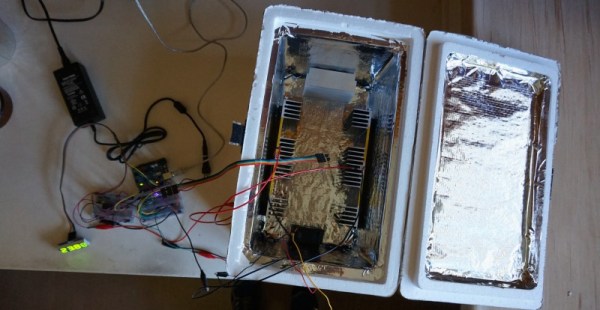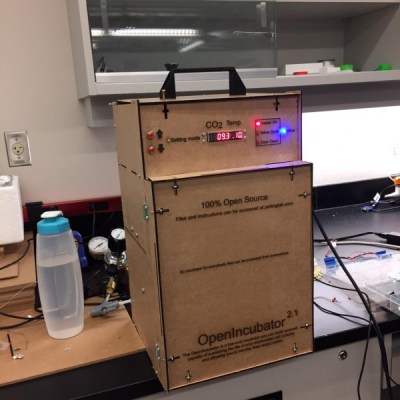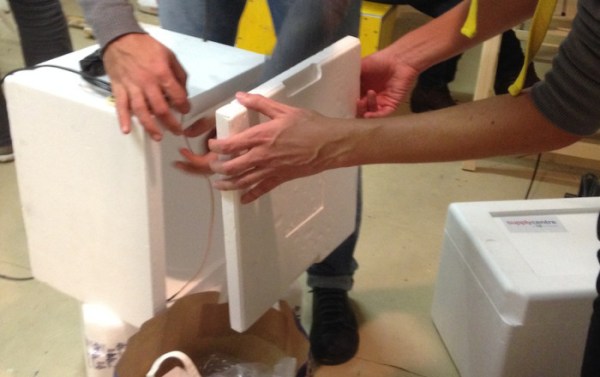Ever wonder what kind of fecal content is in your drinking water? Do you also like yogurt? If so, this DIY Bacteria Incubator is just for you!
[Robin] is part of the BioDesign team for the Real-World project which is an interdisciplinary project featuring biology, electronics, and environmental sciences to bring together solutions for real world water problems. Since it’s a community oriented project they strive to keep it open-source and well-documented in order to share with everyone.
The DIY Incubator is a rather simple tool that can be used to help analyze water for fecal contamination, which is a problem in many third world countries. It consists of a styrofoam box, a light bulb and a home-brew Arduino which provides the PID control of the heat. For bacterial analysis, regular coliform bacteria live at 35C, while fecal coliform prefer about 44C — if incubated at these temperatures the bacteria will make itself known very quickly (within about 24 hours).
Oh and if you don’t want to find out how dirty your water is, you can also make yogurt instead. Check out a short demonstration of the incubator after the break.
Continue reading “DIY Incubator Cooks Bacteria… Or Yogurt!” →














